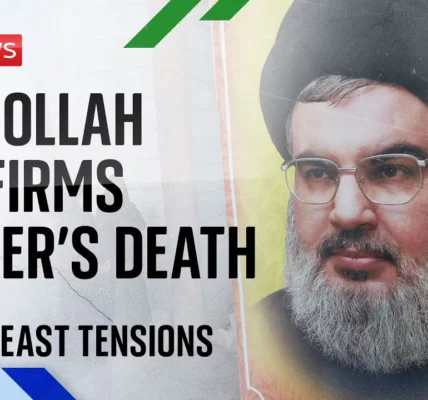Extraordinary Day of Displacement in Lebanon

On an unprecedented day filled with tension and fear, tens of thousands of people in Lebanon sought refuge in Beirut amidst escalating violence and airstrikes. This article delves into the harrowing experiences of those fleeing, the ongoing conflict, and the broader humanitarian implications.
Introduction
The recent upheavals in Lebanon have led to a remarkable and distressing migration of people towards Beirut. On what can only be described as an extraordinary day, many families packed their belongings into their vehicles, seeking safety from the escalating airstrikes and violence in southern Lebanon. This mass exodus paints a grim picture of the humanitarian crisis unfolding in the region, as the conflict continues to displace thousands and exacerbate existing tensions.
The Mass Exodus to Beirut
The movement of the population towards Beirut was characterized by a significant wave of families fleeing the conflict. The traffic jams that ensued reflected not only the urgency of their escape but also the sheer number of people attempting to leave the region. Reports indicate:
- Tens of thousands of individuals were seen moving towards Beirut.
- Families traveled with their belongings precariously stacked on top of their vehicles.
- Many were caught in traffic jams lasting upwards of 12 hours, highlighting the chaos of the situation.
This desperate bid for safety is underscored by the fear of airstrikes, with many families forced to leave behind their homes and livelihoods. The humanitarian implications of such mass displacement are profound, as many individuals find themselves without basic necessities.
The Ongoing Airstrikes
As families attempted to escape, airstrikes continued to ravage southern Lebanon. The Israeli Defense Forces (IDF) have stated that their targets are military installations and weapon stores. However, the reality on the ground tells a different story:
Impact on Civilians
Witness accounts describe a harrowing scene, with bombings occurring near populated areas:
- Some airstrikes occurred as close as 200 meters from fleeing families.
- The sound of explosions and the sight of smoke created an environment of extreme anxiety and fear.
Strategic Tactics
There appears to be a tactical intention behind the airstrikes, aimed at forcing the population out of southern Lebanon. This has led to a significant number of people sleeping rough, with many families resorting to makeshift shelters:
- Some families have been seen sleeping on the beach.
- Others have been forced to find refuge on sun loungers, highlighting the desperate situation.
Political Reactions and Statements
The political landscape surrounding the conflict remains fraught with tension. Iranian-backed Hezbollah has claimed responsibility for targeting an Israeli factory, a claim that has not been officially confirmed by Israeli sources. The response from Lebanese political figures emphasizes the broader implications of the strikes:
Voices from Lebanon
Independent MP Shael Massad described the airstrikes as “an attack not only on geography but also dignity on rights and on the future of our generations.” This statement encapsulates the sentiment felt by many Lebanese citizens:
- The strikes are viewed as an assault on national identity.
- Public opinion is increasingly polarized regarding the ongoing conflict.
- There is a growing call for international intervention to address humanitarian needs.
The Humanitarian Crisis
The situation in Lebanon is dire, with a significant number of displaced people adding to the already complex humanitarian crisis. Recent estimates indicate:
- Over 120,000 people have been displaced from southern Lebanon in the past 11 months.
- Approximately 60,000 Israelis are also displaced across the border.
The ongoing violence exacerbates the challenges faced by humanitarian organizations striving to provide assistance to those in need. The combination of displacement, fear, and inadequate resources paints a concerning picture of the current state of affairs in Lebanon.
Conclusion
The extraordinary day of displacement witnessed in Lebanon serves as a stark reminder of the ongoing humanitarian crisis affecting countless lives. As families continue to flee violence and seek safety, the international community must take notice and respond to alleviate the suffering of those caught in this conflict. It is imperative to advocate for peace, support humanitarian efforts, and ensure the protection of civilians in Lebanon. For more information on the humanitarian efforts in the region, visit our related articles.
“`




